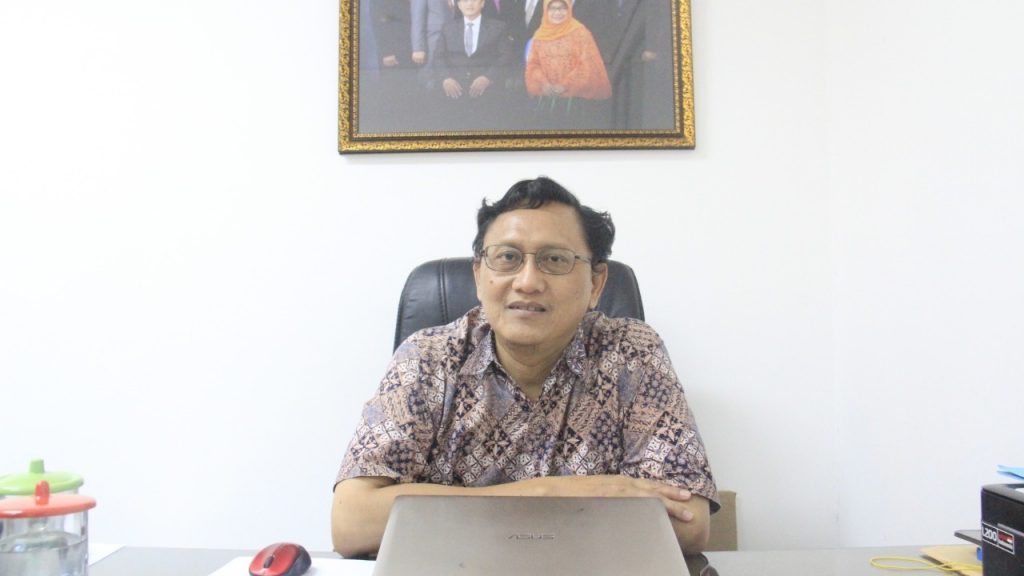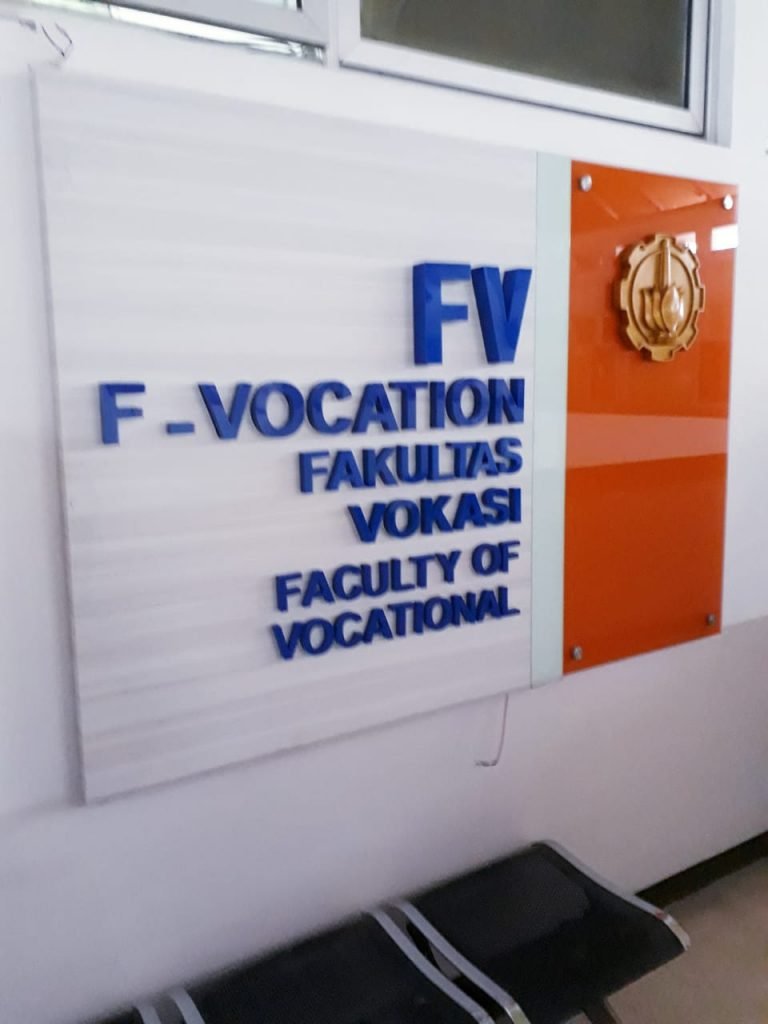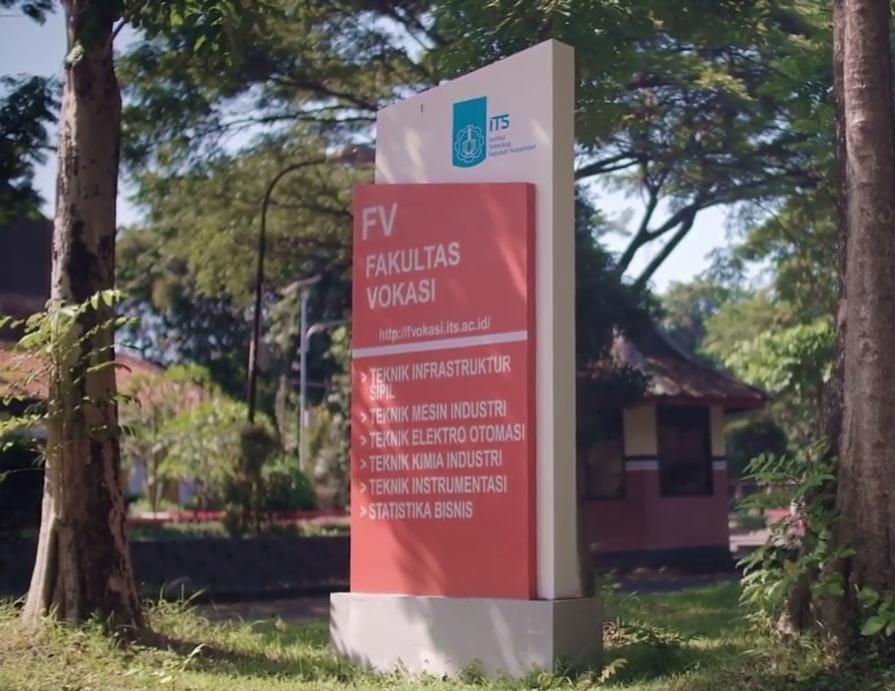Improving Student Competencies, ITS Vocations Develops Certification Update
Faculty

Dekan of the Fakultas Vokasi ITS, Prof. Ir Muhammad Sigit Darmawan MEngSc PhD
ITS Campus, ITS News – To increase the usability of its graduates in the post-campus field, vocational higher education needs to work closely with the Dunia Usaha dan Industri (DUDI). To prepare for this, Fakultas Vokasi Institut Teknologi Sepuluh Nopember (ITS) also helped to develop graduate competencies that were relevant to the needs of industry and the working world through certification updates.
In 2020, the Ministry of Education and Culture (Kemdikbud) of the Republic of Indonesia through the Directorate General of Vocational Education will hold a competition for Quality Value Development for Vocational Higher Education Partnerships with Business and Industry based on KKNI and industry standards. This program provides funding for Vocational Higher Education in terms of developing a competency test scheme for its graduates.
Dean of the Faculty of Vocations, ITS Prof. Ir Muhammad Sigit Darmawan, M.EngSc. Ph.D. said that the faculty currently only has two competency test schemes that have been licensed by the Badan Nasional Sertifikasi Profesi (BNSP). Graduates of the Applied Bachelor (Diploma-IV / D-4) program are expected to have a minimum of three competency certificates. “There is a very urgent need to develop a competency test scheme in the FV environment,” he said.

ITS Faculty of Vocations Office
To pass the selection for this program, ITS along with nine other Vocational Higher Education followed the stages which included administrative selection, proposal making for the eligibility assessment of the proposed program, and presentation of the proposed proposal. “It needs smart work so the proposals can be written right in the short time which was given by the Ministry of Education and Culture,” explained the lecturer who is usually called Sigit.
Vocational Higher Education Institutions that receive quality value development programs are provided with the provision which later can produce competency test schemes, competency test materials, and technical guidelines for Competency Test Sites or Tempat Uji Kompetensi (TUK). Sigit added that TUK at ITS is usually done in a laboratory. “Sometimes the equipment in the laboratory is still limited, but with this program, we can use facilities from partners from the industry or other university partners.” explained this bespectacled lecturer.
The making of the competency test scheme involved assessors from among lecturers, partners from DUDI, and resource persons from BNSP. With the concept of link and match between higher education institutions and DUDI, competency schemes are arranged according to what the industry needs. “Indirectly, lecturers who take part in this program also get more knowledge from interactions with DUDI,” explained the Professor of The Department of Civil Infrastructure Engineering.

Signage showing a number of departments under the ITS Faculty of Vocations
To prepare the competencies needed by the industry, Sigit explained that the ITS Vocations curriculum of education must be able to accommodate the dynamics that occur in the DUDI environment. “Changes in curriculum structure are generally carried out every five years, but the content of the curriculum must be updated at any time so that it is not out of date,” he added.
In this program, the Ministry of Education and Culture provides options of six priority areas of the program, those are Engineering, Construction, Creative Economy, Hospitality, and Maintenance Services. In this case, Sigit revealed that ITS chose a construction program. “This choice was obtained from 17 mapping schemes at ITS that were quite ready to submit a license to BNSP,” said the professor of the field of concrete structure science.
That being said, FV ITS requires 24 competency test schemes that are covered in eight study programs. With this program, Sigit hopes that by the end of 2020 there will be two competency test schemes from each study program in the FV environment that are relevant to what the industry needs. “So there is no reason for DUDI not to recognize the competency certification issued by ITS and accept graduates to work,” he said. (tri/nadh/ITS Public Relations)
Latest News
-
Computer Engineering Department of ELECTICS ITS Showcases Innovations at Toyota’s Internal Exhibition
Surabaya, ELECTICS ITS – The Computer Engineering Department of the Faculty of Intelligent Electrical and Informatics Technology (ELECTICS) at
-
ITS FTIRS Students Win Second Prize at SEA-CICSIC 2025
SEA-CICSIC 2025 (Southeast Asia – China International College Students’ Innovation Competition) is the Southeast Asian regional version of the
-
ITS FTIRS Holds Work Accident Investigation and Reporting Training for SMK3 Implementation
Surabaya, June 12, 2025 — The Faculty of Industrial Technology and Systems Engineering (FTIRS) of the Sepuluh Nopember Institute





